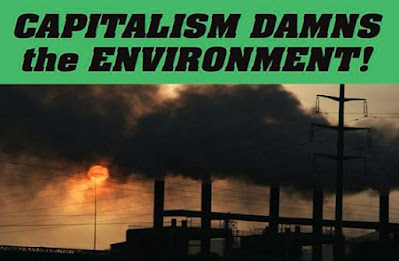People are beginning to call more and more often for the end of capitalism, or at least speak of the crises of the capitalist system. In the face of growing hardships and increasing attacks on workers in every sphere of society, growing numbers of workers are taking matters into their own hands to fight back against the owning class of capitalists that rules. But the debates and discussions suffer from one initial disadvantage, an inadequate definition of the subject under discussion, and this is common both to the adversaries and defenders of capitalism. The result is that many of these discussions only add to the already existing confusion they all have a different interpretation of the terms used. Capitalist society is based on the exploitation of the working class by the capitalist class and that all the evils of this society arise from that. Working people face the situation where the capitalist rulers are stepping up their drive to wring even more profit from the workers. Speed-up, under the fine-sounding name of “productivity,” and hand in hand with it, wage cuts, massive lay-offs, ending formal employment contracts, creating temporary and part-time employees with obligatory forced overtime–these are the main forms of attack on the working class today. To eliminate capitalism, that alone can move society forward. And abolishing capitalism will put an end to the division of society into classes and bring about a completely new era in human history–SOCIALISM–where mankind as a whole, through its cooperative efforts and conscious planning, advance to heights undreamed of in the past. This is why the aim of the working class, through all its daily battles against the capitalists, must not only be to win whatever concessions. can be wrung from them today, but to build the strength and unity of the working class for the day when it will be able to overturn the capitalist order altogether in every country. No political party can represent both capitalist and worker, for the capitalist lives by exploiting the worker and the workers lives for the day they can end this exploitation. Freedom for the working class means the ending of capitalist wage-slavery–something the capitalists will never permit.
The World Socialist Movement is as wide as the world, and its mission is to win the world — the whole world for humanity. The world the WSM is to win from capitalism will be filled with wealth for all to have and to enjoy in its abundance. And why not? We have the knowledge. We have the technology to free, not to enslave, to save, and not to destroy. Within in every passing breeze, in every tide, in each ray of sunshine, we possess fabulous sources of renewable energy. Abundance can banish for all time poverty and misery, and make the Earth fit once more for human habitation. The worst in socialism will be better than the best in capitalism. To achieve this great socialist ideal is a work of education and organisation. The working class must be aroused. They must hear the trumpet call of economic solidarity and political solidarity. A new power will be in control. The people! For the first time in history the working people will be free and no class will be subjugated or in subjection.You produce by your labour all the wealth of the world. You have little or nothing to show for it. You build all the palaces and live in hovels. You support this or that government, but you are oppressed, repressed and suppressed by it.You are divided at the ballot box. All the political parties stand for the capitalist system, for the private ownership of the means of wealth production and the operation of industry in the interest of the capitalist class. They are all committed to the perpetuation of wage-slavery, and whether one or the other wins, you lose. You produce everything and have practically nothing, while the other class produces nothing and has everything.
We may not ever be elected. If so it will not be our fault; it will be you to blame, and you will have to accept the consequences and be held accountable of your act. You will be responsible for what you voted for. So far as we are concerned, defeat means but little, because we are but a few. But it means a great deal as far as you are concerned, for it will mean more years of wage-slavery.









